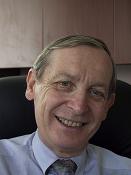It’s been four years since we’ve had an IACFS/ME conference. The NIH’s two-day ME/CFS conference – a worthy effort but not a match for a full-blown IACFS/ME conference – knocked the IACFS/ME conference off the schedule last year. Then the coronavirus knocked off the big IACFS/ME conference scheduled at Stony Brook earlier this year. The IACFS/ME, the organization of ME/CFS professionals, however, has bounced back with a smaller half-day-plus Zoom conference that is beginning in two days!
The five-hour conference goes from 10 am to about 3:30 pm EST and is being done entirely virtually. The IACFS/ME obviously can’t cover everything in a 5 1/2 hour conference, but it’s done something distinctive in this one – introduce many new faces. Sometimes people complain of hearing from the same old people all the time. This conference is not that. The fact that the IACFS/ME has been able to fill almost half its day with new faces is very good news.
Moldofsky Leads off COVID-19 Section
“One can anticipate — and this is a prediction — that a significant proportion of the population who were employed when they became ill with [COVID-19] may not be able to return to work in any meaningful way,” Dr. Harvey Moldofsky
The IACFS/ME scored when they got Dr. Harvey Moldofsky to start off the conference. Moldofsky is a pioneering fibromyalgia sleep researcher out of the University of Toronto who followed and documented the devastating long-term effects the first SARS virus in 2003 had on medical personnel. It wasn’t easy. Even though it was healthcare workers who were primarily affected, Moldofsky reported there was zero interest in tracking them and he had to carry out the study without any grant funding. Such has been the interest in post-viral studies in general.
It took him seven years to complete the study and the results were shocking: almost half of the healthcare workers had failed to return to work. (Note that the first SARS virus was much more virulent than the present one; those kinds of statistics are not expected this time.) Their symptoms (persistent fatigue, muscle pain, weakness, and non-restorative sleep) looked very much like ME/CFS/FM. Calling the condition “chronic post-SARS syndrome”, Moldofsky, who had been studying the sleep issues in fibromyalgia, said it was “similar to the fibromyalgia but without as much pain.” He believes the symptoms are due to inflammatory processes that are affecting the central nervous system.
Four other talks by Lenny Jason, Sadie Whittaker, Ron Tompkins and Luis Nacul on COVID-19 and ME/CFS make up the COVID-19 section.
Immunology and Metabolism
We’ll likely be seeing more Zoom conferences over time, and one of the benefits to having one is hearing from people from all parts of the globe. Dr. Wakiro Sato of Japan (a new name) will speak on immune dysregulation and B-cells. Dr. Ina Katrine Nitschke Pettersen (a new name to me, at least) from Norway will speak on energy metabolism. Just last year, Dr. Katrina Lien, also of Norway, published a ground-breaking two-day exercise paper on lactate production during exercise. Norwegian researchers are continuing to break new ground in this disease.
Fred Friedberg’s talk, “Why Patients Improve. Why They Get Worse”, may have the most intriguing title of the conference. Marvin Medow thought that a simple oral rehydration formula might be as effective as saline and set out to prove it. He’ll be presenting his results at the conference. Given Workwell’s recent case study showing that regular saline infusions in a person with ME/CFS significantly improved all aspects of her cardiovascular functioning and her ability to recover from exercise, Medow’s talk is of even greater interest.
LDN has been mostly associated with FM, and no ME/CFS studies have been done – which makes Dr. Rhonda Jay Mackay’s talk on the effectiveness of low dose naltrexone in ME/CFS (as well FM) of special interest. (Dr. Mackay is from the Complex Chronic Diseases Program in British Columbia (CCDP).) Dr. Mathew Schu (yet another new name to me) will talk on MapME/CFS – a new data portal that seeks to integrate data from numerous disciplines in order to provide new insights into ME/CFS.
More New Faces
Next up come two of the most intriguing talks for me. Ryan Whelan (another new name to ME/CFS research), is a research assistant at the Simmaron Research Foundation and a clinical assistant at Dr. Peterson’s Sierra Internal Medicine Clinic. Whelan’s been doing lots of data analysis for Simmaron. His talk, “ME/CFS and Autoimmune Associated Small Fiber Neuropathy”, suggests he may found a link between two of the most potentially important issues in ME/CFS – autoimmunity and small fiber neuropathy (SFN). We have heard that SFN is common in ME/CFS but Whelan’s talk may provide the first statistical evidence that this is so.
Lastly, Dr. Daniel Missailiaidis (another new name!) from La Trobe University in Australia will talk on mitochondrial dsyregulation in lymphoblasts. Since lymphoblasts are the progenitor cells of B and T cells, problems with energy production could presumably have far-reaching immune consequences.
Dr. Lily Chu will then give the closing remarks.
Registration
Registration for the conference is $50 for patients and $40 for patients who are IACFS/ME. The conference is in just two days – on the 21st.
You might consider becoming a member ($50/year) of the IACFS/ME, as well. That gives you a discount and gives you access to the ME/CFS journal the organization puts out. Plus it supports the organization.
Professional disease organizations can make a big difference, but not all diseases have them. Despite having far more patients, the fibromyalgia field, for instance, does not. The fact that we do have one is due to the foresight of Dharam V. Ablashi and Orvalene Prewitt back in 1990. Since then the IACFS/ME has put on 17 conferences that have brought researchers and patients together – undoubtedly sparking many collaborations. Supporting the IACFS/ME is a great way to support ME/CFS.
The You+M.E. Patient Registry, the Open Medicine Foundation, Kantor and Kantor (a disability firm), and The Renaissance School of Medicine at Stonybrook University are supporting the conference.








Oh gosh I’d join the meeting on Zoom but I’m waiting for approval of Disability benefits STILL and gotta palm my pennies so to speak! I’m sure you will give the highlights that are important. Likely I feel so so so so ill that I wouldn’t be able to hang in there anyway due to major fatigue and cognitive impairment / endurance issues. Come on Social Security !!!!! Take good notes ! 🙂
I promise will take good notes – and good luck on the disability!
THANKS CORT ON ALL COUNTS !!!!
The schedule of speakers looks great!
I am signed up — I can’t wait to hear Dr. Moldofsky’s talk – he likely has a LOT of wisdom to impart to our ME researchers re: obtaining funding – from his experiences with post-SARS patients who failed to recover and joined our ranks.
Let’s hope history does not repeat itself with zero research to study post-COVID patients who fail to recover & also become ME patients. Surely the numbers of long haulers will be too numerous to ignore this time around.
The IACFS/ME is a crucial organization that I hope many of us as possible can support. They run on a shoestring and every conference they put on is a small miracle.
From what I’ve been told every conference – and they are essential to this field – is a huge lift for this small and really rather poorly supported organization. Please do not take them for granted
Will they film the presentations and make them available after the conference? I’d love to watch them at my leisure.
Great question. They have not done that before but now this is Zoom. I would think it would be easier….
Would also love to see a YouTube vod of the event or something similar.
My understanding is that the event will be recorded and provided to registered attendees only.
Thanks Daniel. Good luck with your presentation 🙂
I was very surprised that the talks are only 10 minutes long with no time in between presenters so in actuality probably shorter. I didn’t sign up for that reason, feeling that the presenters couldn’t therefore convey that much, nor have time to discuss things together and take questions from the audience. However, the truth is that a little is far better than nothing and I should have done it. I will depend on your experienced sense, Cort, to not only summarize, but to convey to us which ways you feel the winds of discovery are blowing.
I didn’t know it was that short. That makes it more imperative that the presenters get to the gist of it quickly. No rambling prologues, no explaining what ME/CFS is, no or little methodology – just cut to the meat of it. That would be a real breakthrough 🙂 Let’s hope.
Does anyone have any takeaways from this that may have watched it?
Thanks